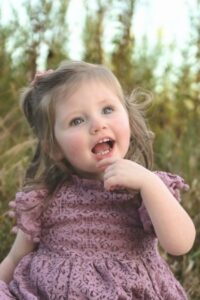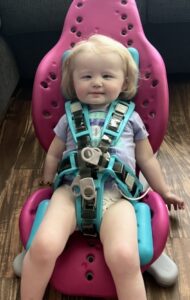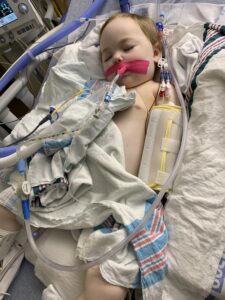Everleigh White
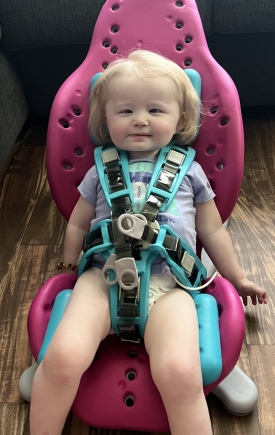
aggressive seizures lead to diagnosis of rare disease
- patient name: Everleigh White
- patient age: 2
- condition: Aicardi syndrome
- seen in: Neurology
- providers: Debra O’Donnell, MD
At just 2 months old, Everleigh was rushed to the emergency department at Dayton Children’s south campus after her mom, Brianna, noticed she was having random jerking movements. Initially, she thought Everleigh was experiencing Tourette syndrome, but the more she watched, she realized the movements were seizures.
Just seconds after arriving at the hospital, Everleigh began having nonstop seizures, her oxygen levels were low and her care team found it challenging to keep her condition stable. Everleigh needed to be transported to Dayton Children’s main campus, where she could be admitted and monitored around the clock.
Transporting Everleigh was risky because her seizures were so frequent and long-lasting. Thankfully, Dayton Children’s provides ground transportation for critically ill children who need to be transferred to another location for care. The fully equipped transport vehicles serve as medical intensive care units and are staffed by highly trained, experienced nurses and respiratory therapists.
Once at the main campus, Everleigh was directly admitted to the neurological inpatient unit where her family met Debra O’Donnell, MD, pediatric neurologist.
“by the time Everleigh was admitted to the neurology service, she had already had infection and trauma ruled out. These are the most common reasons for such agressive and abrupt seizures to occur in a young infant. Her CT was suggestive of a possibly severe brain malformation such as Aicardi’s. The primary focus in the moment was to try to control the seizures, but getting additional testing and an ophthalmology exam completed were critical in diagnosing the underlying problem. So, we tried to blance sorting out the cause of the seizures while trying very hard to get them under control. Over the next few days as information was gathered, it became clear that Everleigh had Aicardi’s and the family was in for a long-term battle to keep her healthy and happy.” – Debra O’Donnell, MD
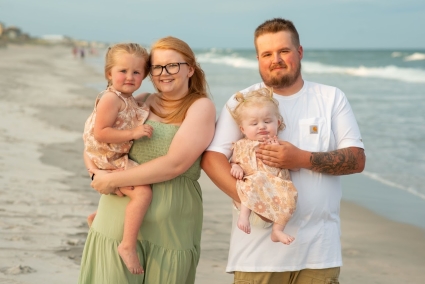
Over the next four days, Everleigh endured blood work, CT scans, MRIs, multiple eye exams, genetic testing, X-rays, ultrasounds and epilepsy monitoring unit (EMU) evaluations. After reviewing all the labs and imaging, Dr. O’Donnell diagnosed Everleigh with Aicardi syndrome. Aicardi syndrome is a rare neurological disorder that occurs in about 1 in 105,000 to 167,000 babies in the United States. Researchers estimate there are approximately 4,000 affected children worldwide, primarily females.
As a result of Aicardi syndrome, Everleigh experiences infantile spasms, focal seizures and tonic-clonic seizures. Infantile spasms are a specific type of seizure seen in infants, focal seizures originate in a specific part of the brain and can have both aware and impaired awareness variants, while tonic-clonic seizures involve the entire brain and present with loss of consciousness, stiffening and jerking movements. This combination of epileptic seizures requires Everleigh to take multiple medications to manage her symptoms. She also has a G-J (gastrostomy-jejunostomy) tube to help with feeding as she has complications with aspiration due to seizures.
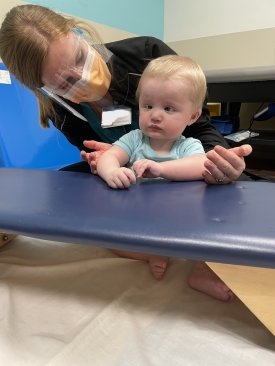
living with Aicardi syndrome
It has been more than two years since Everleigh received her diagnosis. While Aicardi syndrome has posed its challenges, the White family feels fortunate to have a dedicated care team that stands by them, guiding them through the tough moments with unwavering support.
Everleigh and her family have become very close with Dr. O’Donnell with regular follow-up appointments. Every year Everleigh has an MRI to look for changes to her brain. She also gets frequent blood work and EMU evaluations to monitor for seizure activity.
Since Aicardi syndrome is rare and complex, Everleigh will continue to be seen by Dr. O’Donnell as well as other specialists throughout the hospital to manage her symptoms, control seizures, provide supportive therapies and address developmental and educational needs as they present.
share your story
Every patient journey at Dayton Children’s is powerful — from NICU miracles to courageous cancer survivors and beyond. These patient stories not only celebrate our families but also offer hope and encouragement to others facing similar challenges. Share your experience today and help inspire, support, and celebrate the strength of our patients and families.
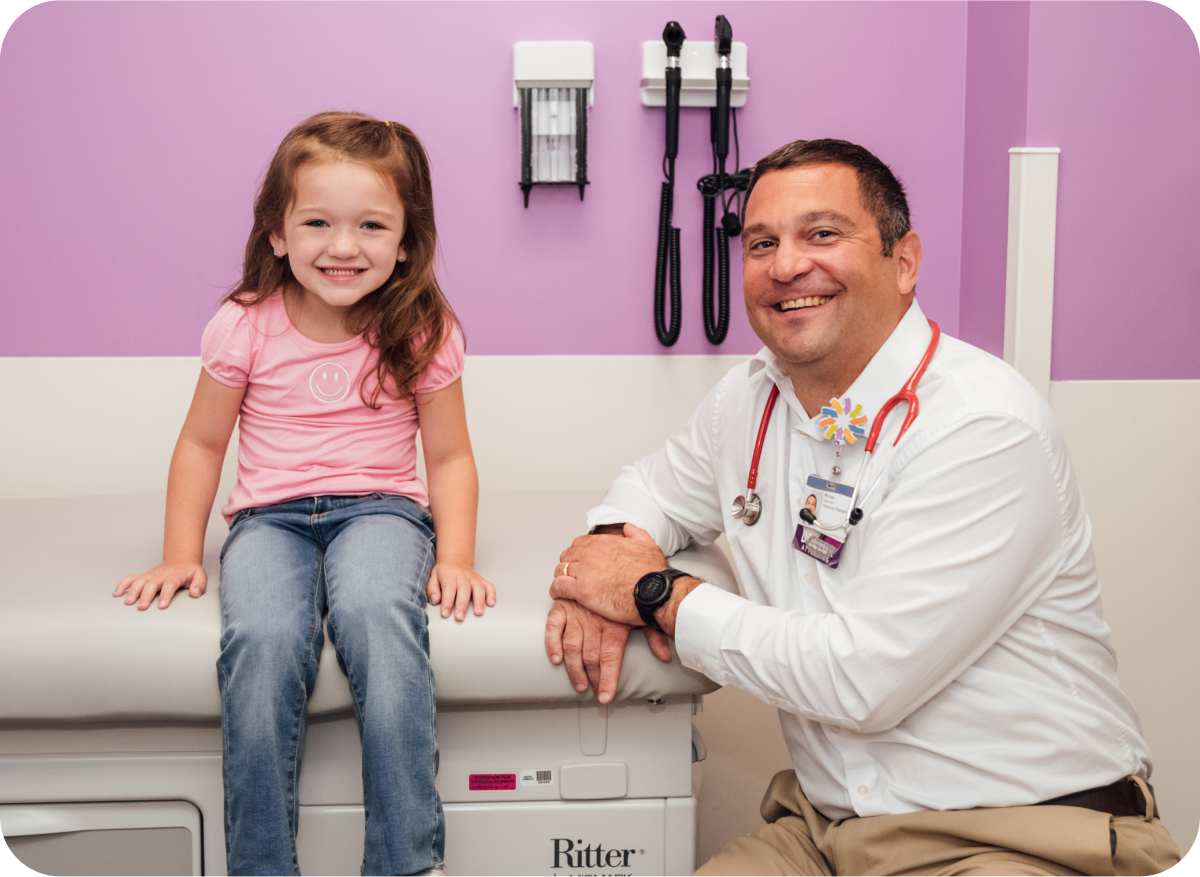
care that goes above and beyond
Because every child deserves care that goes above and beyond, Dayton Children’s provides compassionate, expert care for kids of all ages. Find a provider, schedule an appointment, or learn more about conditions we treat today.

